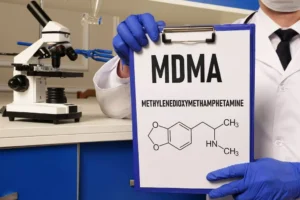
But family members can feel great pain over a loved one’s SUD and are left to grapple with the consequences and the added stress all on their own. As a result, those with loved ones who struggle with a SUD often have to guess about how to manage their own emotions as well as added responsibilities and other practical consequences of the afflicted person’s impact on the family. Loved ones of people with alcohol use disorder may feel less empathy for them and become more frustrated with them as time passes. We get how challenging this can be, but it may help to learn about how alcohol affects the brain. Support groups or counseling can benefit family members affected by someone else’s alcohol abuse.
- Most of the time, family counseling is required to help families recognize the causes of problems and develop healthy solutions to resolve them.
- The enabler tries to reduce harm and danger through enabling behaviors such as making excuses or doing things for the addict.
- Psychoeducation aims to empower family members with knowledge about addiction, enhancing their ability to provide constructive support.
Facts and Statistics on Alcohol and Marriage
The survey results showed that people in committed relationships who use alcohol during intimacy were more likely to be sexually aggressive toward their intimate partners. A 2018 study found that alcohol had negative effects on both partners in a relationship for different reasons. Some adult children of parents with AUD take themselves https://ecosoberhouse.com/ very seriously, finding it extremely difficult to give themselves a break. If they had a tumultuous upbringing, they may have little self-worth and low self-esteem and can develop deep feelings of inadequacy. If a child's parent was mean or abusive when they were drunk, adult children can grow up with a fear of all angry people.
Talking to Friends and Family About Your Drinking
- Individuals who misuse alcohol experience physical impairments that can draw others into caring for them.
- Families play a central role in an individual’s life, serving as both a source of support and potential stressors.
- The attitudes and beliefs that family members have about SUDs are also of importance as these will influence the individuals as they try to get sober and will influence the efficacy of treatment interventions.
- However, it can be useful in getting a general picture of the common dynamics in families dealing with addiction.
- Families, like vehicles, are similarly coordinated systems, with each person relying on others to make sure everything functions and everyone is taken care of.
This deterioration of trust damages relationships and makes family members resent one another. The person with alcohol addiction experiences the brunt of the physical problems, but people who are close to them often share the emotional side effects of the person’s addiction. Just as treatment is available how does alcohol affect relationships for alcohol misuse, treatment is also available for codependency and has been proven effective. One of the main goals of codependency treatment is to help realign caregivers with their own needs so they can live personally fulfilling lives, rather than being in constant service to a loved one’s addiction.
Partner's Drinking and Alcoholism
Couples and families from diverse backgrounds differ in their values, the structure and functioning of the families, gender roles within these relationships, how family members influence and support each other, and the role of alcohol use and AUD in the family. Future research needs to focus on developing a more nuanced understanding of family structure and function around AUD in diverse populations to develop effective family-engaged treatments and dissemination of knowledge of effective practices to support recovery for these populations. Despite this observed association, household alcohol exposure has not been established as an independent risk factor for poor childhood neurodevelopmental outcomes. Only a handful of studies accounted for confounders such as parental depression, traumatic life events experienced by the household, financial problems, or childhood factors such as poor nutrition, premature birth, and intrauterine toxin exposure.


Adults who have parents with alcohol use disorder are often called “Adult Children of Alcoholics,” aka ACoAs or ACAs. The enabler tries to reduce harm and danger through enabling behaviors such as making excuses or doing things for the addict. The enabler tries to control things and hold the family together through deep denial and avoidance of problems. The enabler goes to extremes to ensure that family secrets are kept and that the rest of world views them as a happy, well-functioning family. As a result, they feel shame a sense that theres something wrong with them, that they are somehow to blame for their parents addiction, stress, and erratic behavior. Wendy Jamison, LPC, LCDC, earned a master’s degree in clinical psychology from the University of Houston-Clear Lake.
The significant increase in out-of-home child placements in the 1980s and 1990s closely paralleled the pandemic drug addiction in the United States during those decades (Jaudes & Edwo, 1997). Any long-term separation will have a negative impact on the child's ability to attach, regulate affect, and can lead to a trauma response of numbing or hyperarousal (inability to discriminate and respond appropriately to stimulus). These impairments in the psychological emergency response system are directly related to, and substantially increase, subsequent traumatic victimization. Maltreated children of parents with a SUD are more likely to have poorer physical, intellectual, social, and emotional outcomes and are at greater risk of developing substance abuse problems themselves (USDHHS, 2003). As previously mentioned, all primates learn how to regulate their affect from their primary attachment figures through the attachment system and modeling. Parents who have substance use problems will likely have their own affect dysregulation that may have preceded or resulted from their substance use.
Study and Participant Characteristics

Sexual and Gender Minority Populations

